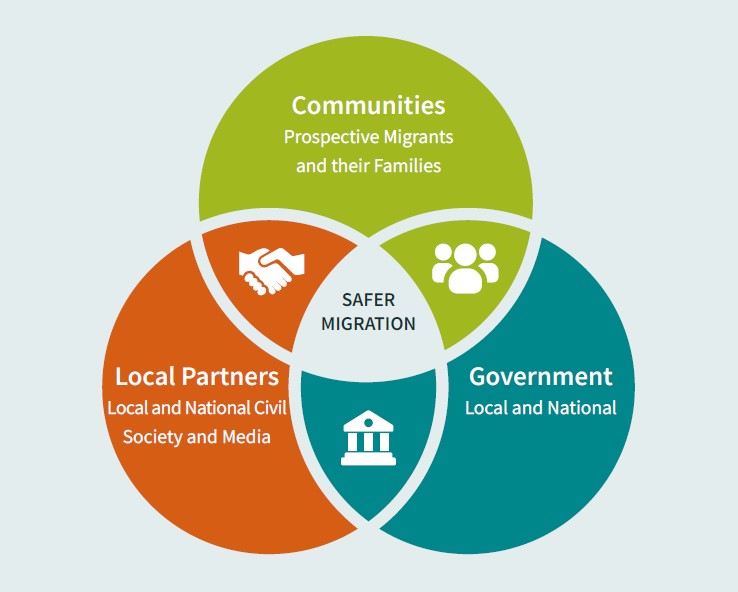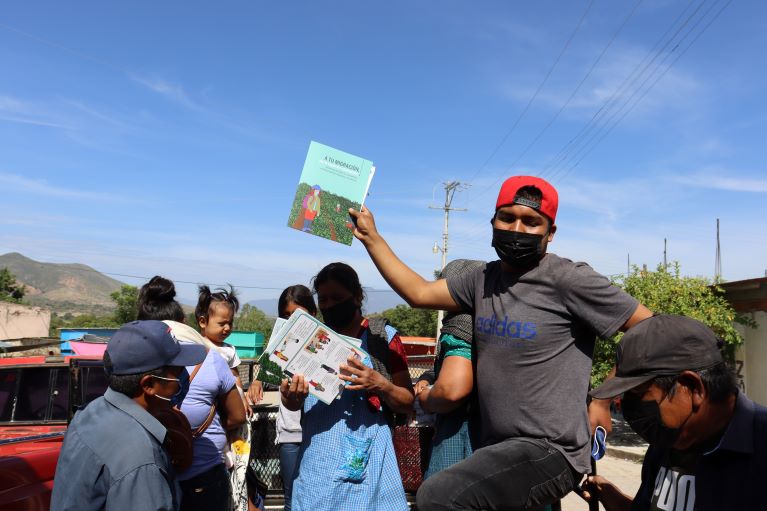Overview
IREX’s First Mile approach is focused on protecting potential migrants from harms and exploitation by giving them the information and tools they need to make better decisions for themselves and their families before a journey begins.
The “first mile” is the period when prospective migrants and their families have yet to make decisions about leaving their communities. Migrants often leave home not knowing what to expect, and struggle to find trusted sources of information regarding personal and legal risks, their labor rights, essential documentation, navigating government bureaucracies, and avenues for assistance and advocacy when problems arise. Where information is available, it is often scattered across sources, not accessible to those outside of urban centers or who are non-literate, and not translated into migrants’ native languages.
IREX’s First Mile approach provides local civil society organizations, media, and other community partners with tools to develop and disseminate accurate information to potential migrants that aids decision-making and mitigates potential harms, and to engage with local governments and other institutions in the target region to support safer migration practices.
First Mile activities are designed to evolve and strengthen over time as local partners build skills and networks, prospective migrants share their experiences and feedback, and data is collected on activity outcomes and impact—ultimately empowering individuals to make informed choices about migration, at the beginning of the journey.
By working with communities, local partners, and governments outside of the U.S., IREX’s First Mile approach fosters more resilient communities, responsive civil society, and accountable governance towards achieving safer migration outcomes.

